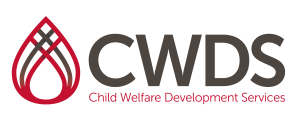CWDS Curriculum
Therapeutic Behavior Intervention Strategies
Level: Advanced Practice – Lineworker, Supervisor, Manager
Credits: 6
Intended Audience: This workshop will be helpful to caretakers in a variety of settings, including shelter care programs, treatment and group home programs, foster homes, kinship homes, schools, and community based programs. In addition, coaching strategies for social workers and others in a position to assist others struggling with the stress caused by troubled and troubling behavior will be addressed.
Intended Objectives:
- To examine the ingredients in a “therapeutic” environment and to learn to assess whether a particular setting is providing opportunities for healing.
- To outline various “categories” of behavioral disturbances, including:
neurotic disturbances, neurological problems and disorders, psychotic
disorders, and anti-social personality disorders and abuse-reactive
patterns of behavior. - To distinguish between various problems influencing behavior presented by children/youth in treatment settings, and to understand how symptomatic behavior “makes sense” given prior maltreatment and current situations.
- To examine the “meaning” behavior has for individual children/youth who present challenging behaviors and develop skills for working with young people to enable them to understand themselves.
- To understand the need for staff to “distance” themselves from behaviors that appear personally directed, in order to remain therapeutic and to discuss strategies that make this possible.
- To increase empathy for the pain and struggles of disturbed and troubled children and youth and to employ empathic understanding to increase ability to “hang in” with kids who tempt us to give up.
- To review features of “disturbed” behavior, and to distinguish these from behaviors that are merely “disturbing”
- To develop specific skills designed to teach children/youth self-control
Topics Include:
- Evidence based problems with placement outcomes
- Distinguishing between disturbed and disturbing behaviors
- Abuse/Neglect reactive disorders
- Troubled and unacceptable behavior as a cry for help
- Confronting myths regarding childhood behavior disturbances
- Maintaining personal and professional distance from challenging child behaviors
- Therapeutic intervention strategies
CalSWEC Competencies Addressed:
1.1 Student demonstrates respect, fairness, and cultural competence in assessing, working with, and making service decisions regarding clients of diverse backgrounds
1.3 Student demonstrates the ability to conduct an ethnically and culturally competent assessment of a child and family and to develop an effective intervention plan
3.4 Student recognizes and accurately identifies physical, emotional, and behavioral indicators of abuse, family violence, and neglect, and can assess the dynamics underlying these behaviors
3.10 Student understands how attachment, separation, and placement affect a child and family and how these experiences may influence a child’s physical, cognitive, social and emotional development
3.11 Student recognizes the importance of working with biological families, foster families, and kin networks, as well as involving them in assessment and planning strategies
3.14 Student understands the principles of concurrent and permanency planning that takes into account the educational, health, and emotional needs of children
4.5 Student demonstrates the ability to recognize abuse occurring in out-of-home placements and to take corrective action to protect children
5.1 Student demonstrates understanding of child and youth development, including physical, cognitive, social, and emotional components, and can recognize developmental indicators of abuse and neglect
6.2 Student can apply theories of human development and attachment in creating and managing effective case plans with clients
6.3 Student demonstrates the ability to recognize, assess, and devise case plans and referrals to address potential for violence, suicide, and complex psychological difficulties
Posted In:Mental Health & Behavioral Health



